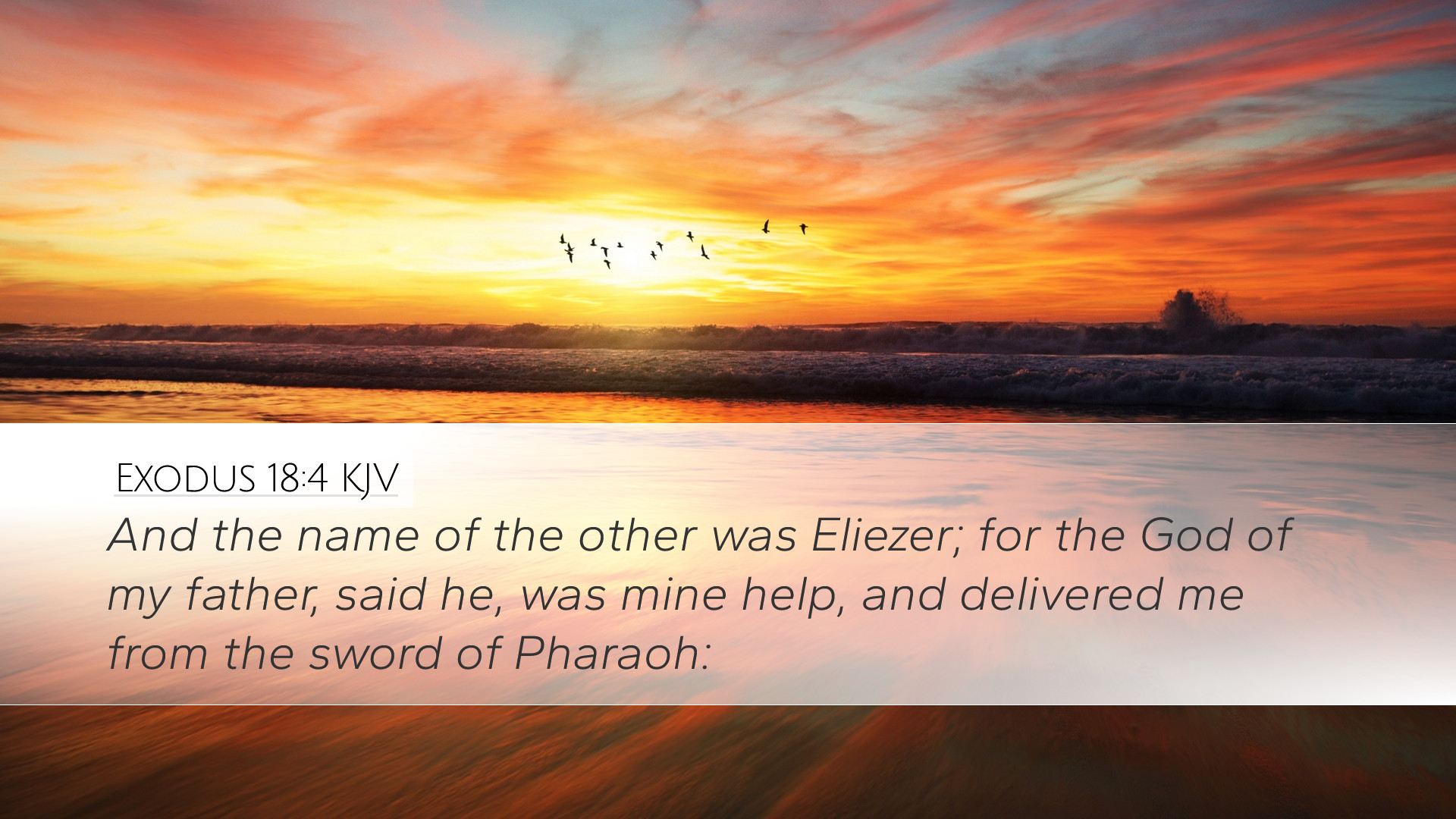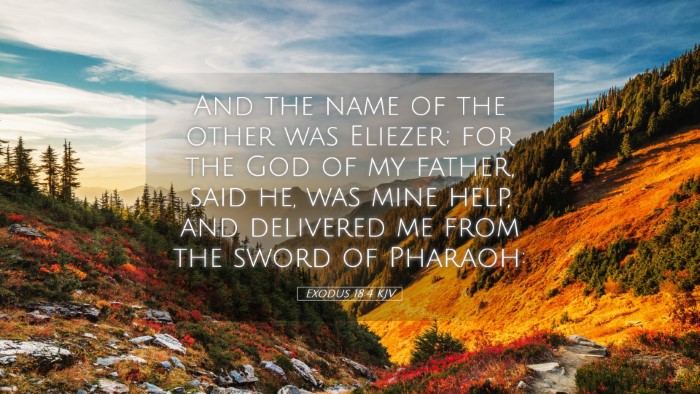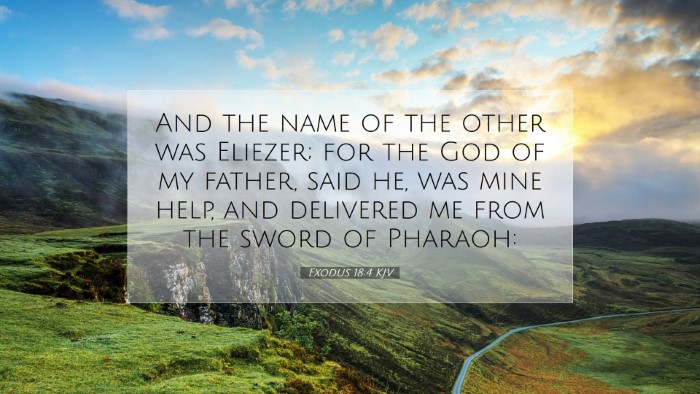Commentary on Exodus 18:4
Exodus 18:4 states: "And the name of the other was Eliezer; for he said, The God of my father was mine help, and delivered me from the sword of Pharaoh."
Contextual Background
This verse appears in the narrative of Moses’ life during his time in the wilderness after fleeing from Egypt. He had just met with his father-in-law, Jethro, and is chronicling the significance of his son Eliezer's name, which reflects God's faithfulness in delivering him from danger.
The Significance of the Name Eliezer
The name Eliezer means "My God is help" (אֵלִיעֶזֶר). This name is deeply significant for it denotes a close relationship between Moses and Yahweh, establishing God's role as a divine helper.
Insights from Matthew Henry
Matthew Henry emphasizes the importance of remembering God's providence in our lives. In choosing the name Eliezer, Moses acknowledges God’s active participation in his deliverance. Henry points to the fact that naming a child is an opportunity to bear witness to God’s faithfulness. It serves as a reminder to both the parents and the child of the nature of divine support in life’s trials.
Albert Barnes on Deliverance
Albert Barnes focuses on the implications of God's deliverance. He notes that Moses was conscious of his precarious situation under Pharaoh, and it was by God's intervention that he and his people were saved. This divine assistance in his past reflects a recurring theme throughout the Scriptures where God acts as a deliverer. Barnes suggests that believers today can find solace and assurance in the same God who helped Moses, reinforcing the continuity of God’s faithfulness through the ages.
Adam Clarke's Historical Analysis
Adam Clarke provides a historical context regarding the circumstances under which Moses fled Egypt. He clarifies that the mention of “the sword of Pharaoh” is symbolic of the lethal threats Moses faced. Clarke connects this notion with the broader narrative of Israel’s deliverance, marking a pivotal moment in biblical history. His analysis helps to understand the depth of Moses’ gratitude and reliance on God’s intervention.
Theological Implications
The verse demonstrates a profound theological theme: God as the helper in times of distress. This is particularly relevant for pastors and theologians as it invites reflection on how God's historical actions inform current faith practices.
- Divine Providence: God’s involvement in the lives of individuals is a recurring motif in Exodus and throughout the Scriptures.
- Faith and Deliverance: Believers are encouraged to rely on God's help in their lives, informed by past deliverances.
- Prayer and Dependence: The acknowledgment of God as a helper reminds contemporary Christians of the necessity of prayer and dependence on divine guidance.
Application for Today
Exodus 18:4 has profound applications for communities of faith today. As pastors and leaders reflect on their own journeys of faith and the providential help they receive, they are reminded to share these testimonies of God’s faithfulness with their congregations.
Encouragement for Believers
- Remembrance: Just as Moses named his son to remember God's help, congregations are called to share stories of God’s faithfulness.
- Hope in Trials: This verse offers hope that God actively supports His people during tough circumstances, instilling confidence in His enduring nature.
- Personal Testimony: Each believer has a story akin to Moses; recounting these can strengthen the faith of others and reinforce communal bonds.
Conclusion
Exodus 18:4 serves not only as a narrative component in Moses’ life but as a theological and practical lesson for all believers. God's role as a helper in times of need is a timeless truth that resonates throughout the generations. As we seek to further our understanding and application of this scripture, may we continue to proclaim, "The God of my father was mine help," and find confidence in His unchanging character and steadfast love.


